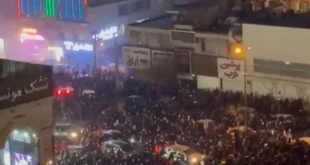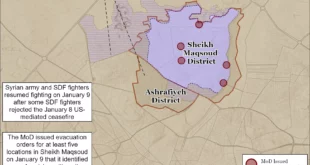 Turkey considers Iran a key energy partner as it needs Iranian gas to feed a rapidly growing energy demand, a Turkish energy executive said on Wednesday following US calls on Ankara to cut business ties with Tehran. Washington is concerned by NATO ally Turkey’s recently announced plans to sharply boost energy cooperation with neighbor Iran and invest $3.5 billion in its South Pars gas field starting next year.
Turkey considers Iran a key energy partner as it needs Iranian gas to feed a rapidly growing energy demand, a Turkish energy executive said on Wednesday following US calls on Ankara to cut business ties with Tehran. Washington is concerned by NATO ally Turkey’s recently announced plans to sharply boost energy cooperation with neighbor Iran and invest $3.5 billion in its South Pars gas field starting next year.
“We cannot disregard Iran only for political reasons,” said Huseyin Saltuk Duzyol, general manager and chairman of the board of Turkish state-controlled pipeline company Botas.
“We need Iran from a commercial point of view,” Duzyol told reporters on the sidelines of an energy conference in Milan.
Duzyol’s remarks echoed those of Turkey’s Prime Minister Tayyip Erdogan last week after US Undersecretary of State Nicholas Burns called on Turkey and other countries to sacrifice their business ties with Iran to help prevent Tehran from making any further progress in the field of nuclear technology.
Turkey needs Iran’s gas reserves, the second-biggest in the world after Russia’s, to feed internal demand which is expected to grow 15 percent a year, Duzyol said. Tehran is already Turkey’s second biggest supplier of natural gas after Moscow.
Ankara has continued talks with Tehran to boost energy ties and technical experts have been preparing a binding agreement after preliminary power and natural gas deals were struck last month, Duzyol said but declined to give more details.
Botas, a partner in the international pipeline project Nabucco to bring Caspian and Middle Eastern gas to Europe, needs Iran’s gas to fill the pipeline whose capacity is expected to reach 31 billion cubic meters (bcm) by 2020, he said.
“We need additional volumes to fill the pipeline. Turkmenistan, Azerbaijan and Kazakhstan can produce 90 bcm together in 2020. Iran can produce it alone,” he said.
Duzyol said the five companies developing the Nabucco project were likely to announce who they had picked as a sixth partner at a steering committee meeting in mid-October.
German utility RWE is widely expected to be the chosen partner. The current partners are Botas, Austria’s OMV, Hungary’s MOL, Bulgaria’s Bulgargaz and Romania’s Transgaz.
Duzyol said the Nabucco project may open up for gas from Russia, Iraq and Egypt at later stages.
The 4.6 billion euro, 3,300 km pipeline is expected to help Europe diversify gas imports away from main supplier Russia.
 Eurasia Press & News
Eurasia Press & News



